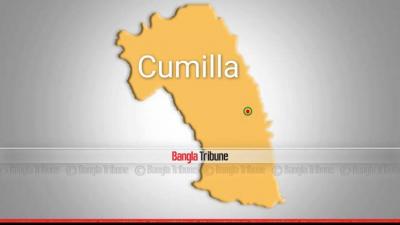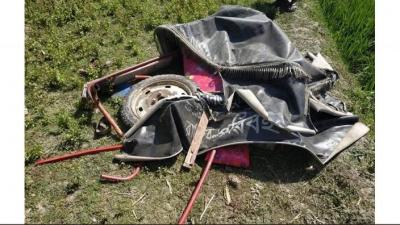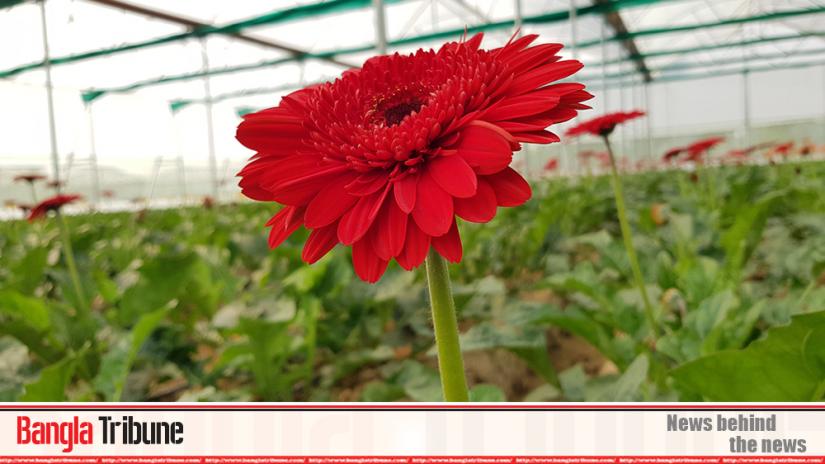 Flower farmers in Jashore are worried over their profit dipping because of natural calamities, a rise in the usage of plastic flowers and an increase in flower production in all districts.
Flower farmers in Jashore are worried over their profit dipping because of natural calamities, a rise in the usage of plastic flowers and an increase in flower production in all districts.
Around 11 varieties of flowers, including Rajanigandha, Gladiolus, Gypsy and other kinds are seen on the large fields of Godkhali in Jhikorgacha, Jashore.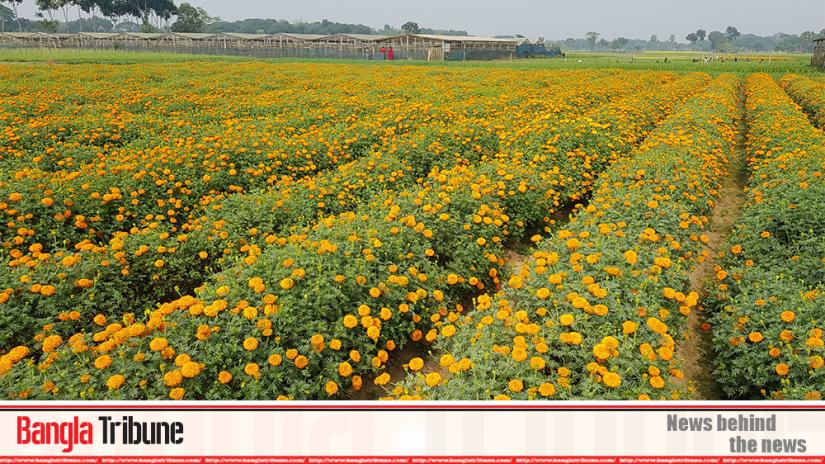 In the next few months there will be several days to celebrate, beginning from Victory Day on Dec 16, followed by Christmas Day on Dec 25, New Year’s Jan 1, Spring on Feb 13, Valentine’s Day on Feb 14 and International Mother Language Day on Feb 21.
In the next few months there will be several days to celebrate, beginning from Victory Day on Dec 16, followed by Christmas Day on Dec 25, New Year’s Jan 1, Spring on Feb 13, Valentine’s Day on Feb 14 and International Mother Language Day on Feb 21.
On these days, the demand for flowers goes up and workers and flower farmers are working round the clock to step up production.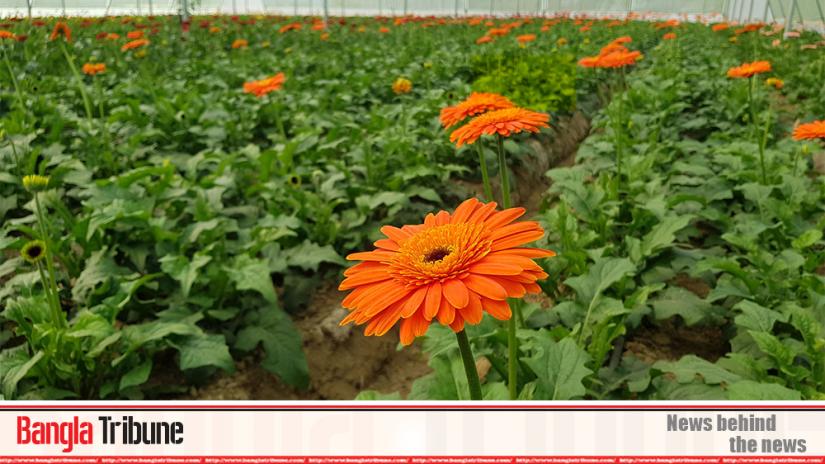 A farmer says: “I have cultivated flowers over 16 bighas of land. The preparation was excellent but production was affected due to cyclone Bulbul. But if we get a good price in the future we will be able to overcome losses.”
A farmer says: “I have cultivated flowers over 16 bighas of land. The preparation was excellent but production was affected due to cyclone Bulbul. But if we get a good price in the future we will be able to overcome losses.”
Another farmer adds: “In the past, we used to make a profit Tk 100,000 to Tk 150,000 per bigha and now it is down to Tk 70,000 to Tk 80, 000. Despite high production, sale is low.”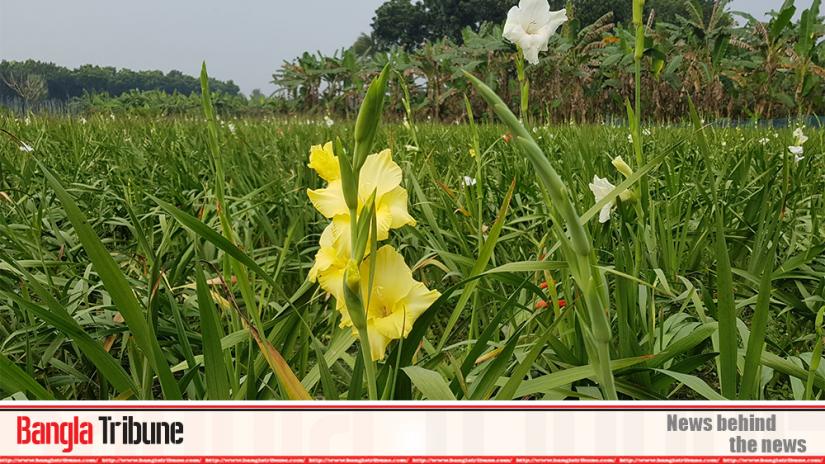 According to present reports, in Godkhali, 100 pieces of Rajanigandha are selling for Tk 200, 100 roses for Tk 300-400, 100 pieces of Gladiolus for Tk 800 and each bundle of Gyspy at Tk 150.
According to present reports, in Godkhali, 100 pieces of Rajanigandha are selling for Tk 200, 100 roses for Tk 300-400, 100 pieces of Gladiolus for Tk 800 and each bundle of Gyspy at Tk 150.
President of Bangladesh Flowers’ Society, Abdur Rahim, added: “Around 3 million people earn their livelihood from the flower trade and 20,000 farmers grow flowers with 6,000 in Jashore alone. While flowers are sold all the year round, the major five events occur between December and February.”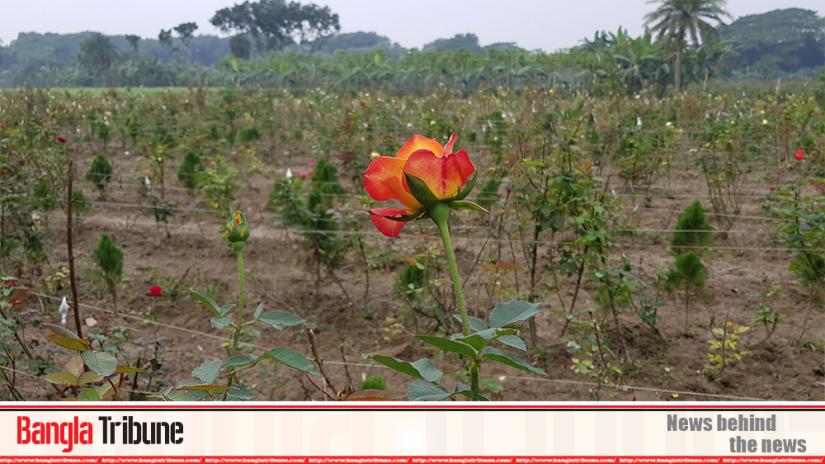 Agriculture officer of Jhikorgacha, Masud Polash, said: “Flowers are being grown over 625 hectares of land in six unions of Jhikorgacha. Around 6,500 farmers and 100,000 workers are associated with this trade.”
Agriculture officer of Jhikorgacha, Masud Polash, said: “Flowers are being grown over 625 hectares of land in six unions of Jhikorgacha. Around 6,500 farmers and 100,000 workers are associated with this trade.”
Flower production began in Godkhali over 30 percent of land in 1983 and a major portion of the country’s flower demand is now met from the area.
 Country
Country
41435 hour(s) 7 minute(s) ago ;
Morning 06:02 ; Wednesday ; Jul 09, 2025
Jashore florists worried as profit dips
Send
Tauhid Zaman, Jashore
Published : 03:00, Dec 16, 2019 | Updated : 03:00, Dec 16, 2019
Published : 03:00, Dec 16, 2019 | Updated : 03:00, Dec 16, 2019
0 ...0 ...
/tf/ab/
Topics: Top Stories
- KOICA donates medical supplies to BSMMU
- 5 more flights to take back British nationals to London
- Covid19: Rajarbagh, Mohammadpur worst affected
- Momen joins UN solidarity song over COVID-19 combat
- Covid-19: OIC to hold special meeting
- WFP begins food distribution in Cox’s Bazar
- WFP begins food distribution in Cox’s Bazar
- 290 return home to Australia
- Third charter flight for US citizens to return home
- Dhaka proposes to postpone D8 Summit
Unauthorized use of news, image, information, etc published by Bangla Tribune is punishable by copyright law. Appropriate legal steps will be taken by the management against any person or body that infringes those laws.
Bangla Tribune is one of the most revered online newspapers in Bangladesh, due to its reputation of neutral coverage and incisive analysis.
F R Tower, 8/C Panthapath, Shukrabad, Dhaka-1207 | Phone: 58151324; 58151326, Fax: 58151329 | Mob: 01730794527, 01730794528

